The Production Team
Malta’s rich history, idyllic scenery, age-old traditions and glorious weather are some of the factors providing attention-grabbing material worthy of a documentary. Maurice and Christopher Micallef, a father and son team are Malta’s most awarded documentary producers.
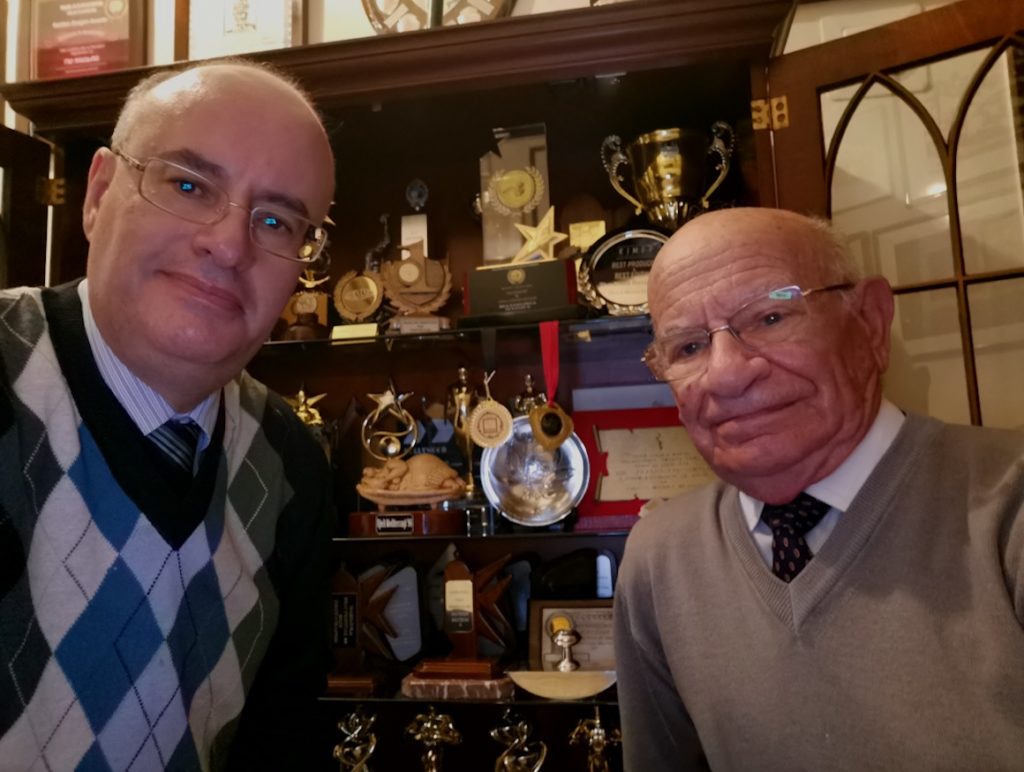
In the beginning
Filmmaker and director Maurice Micallef was born in 1935. In 1964, Maurice produced his first documentary entitled A Glance at Valletta. In 1972, with funding assistance from the Italian Government, he was sent to Rome’s RAI Studios. There he gained technical experience that helped shape his career.
At the tender age of nine years old, Chris’ first role in the film industry was starring in one of his father’s productions, The Boy and the Red Ball. His part in this led him to receive the best actor award in 1977. Three years later, Chris went on to star in another of his father’s films, ‘My Brother’s Keeper’, which again earned him the same award.

Separate Works
Before focusing on documentaries, Maurice produced fiction films, namely Twelve into Ten (1972), The Hiker (1974), Images (1975), The Boy and the Red Ball (1977), The Hand of God (1978), My Brother’s Keeper (1980), Back to Eternity (1986), Full Circle (1992), Fatal Hitman (1994), and Arlekkinu (1996).
In 1985, Chris took on his first role as a producer. His debut was a documentary named Lifeline for a City about Malta’s aqueducts during Grand Master Wignacourt’s reign in 1610. The film earned him a staggering 11 awards, not only in Malta but also in Skopje, Jesenice, and later in Cork to name a few.
Graduating from the University of Malta with a degree in engineering, Chris went on to obtain a Master’s degree in business administration and a Doctorate in Social Sciences from the UK and a diploma in art from Valletta’s School of Art.
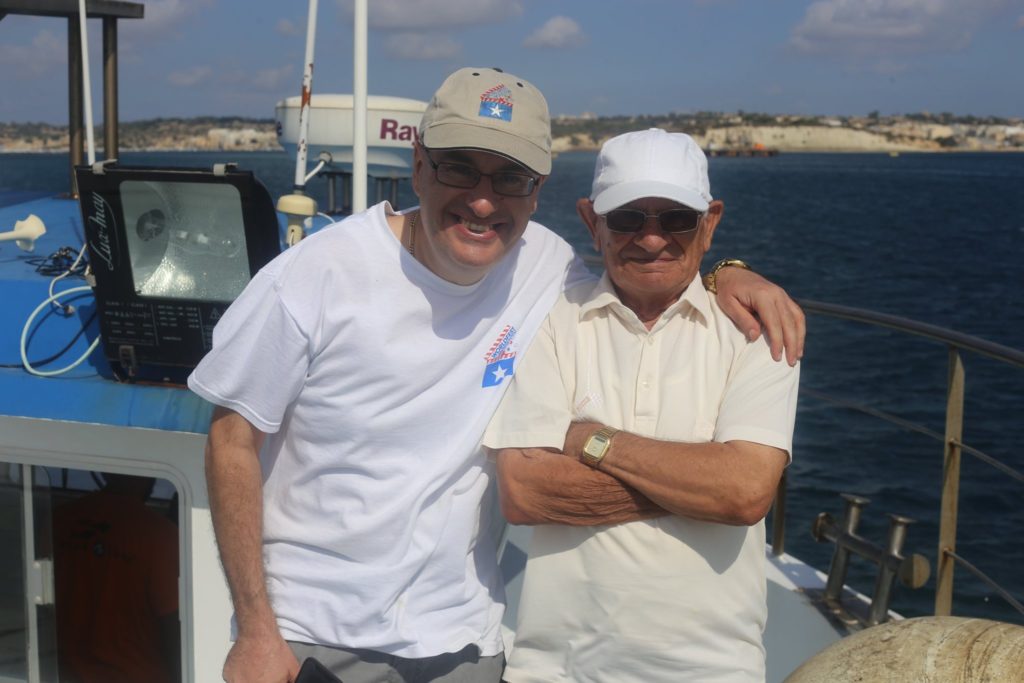
Collaborations
It was in the mid-80s that both Chris and Maurice realised that their strong point is in documentary productions. They have since worked together, and in the process set up CMM Productions. At first, directing and producing three documentaries on Super 8, in 1994 Maurice and Chris went on to make documentaries exclusively for ONE Group.
Those documentaries being Norman Legends in Malta, Il-Misteru tar-raddi fil-blat, Mnajdra, Wignacourt’s Aqueduct, Filfla, The Oldest Calendar in Stone, The Phoenicians, The Tal Qadi Stone, Hal Far Airfield, The Unsolved Mystery, Kannizzati Fishing, The Normans, The Giant Deep Reds and The Romans.

Malta’s long hours of sunshine is just one of the many factors that make Malta the ideal location for documentaries. Blessed with a rich cultural and social heritage, the range of subjects that one can tackle for documentaries is varied and diverse.
Malta’s History
Every coloniser left an imprint on our Maltese cultural heritage, ranging from prehistory and the building of megalithic structures to British rule. “A fleeting look at what documentary subjects we have tackled over the years will take the audience to the four corners of the world, all in the space of 316 square kilometres.”

In finding subject material for their documentaries, there are three steps to success: “First of all the subject material has to be appealing to the scriptwriter and the producer of the documentary. Producing a documentary is, indeed, a very long and laborious process.
Secondly, look practically at what is available to be filmed, availability of resources and budget limitations, and then decide the way forward.
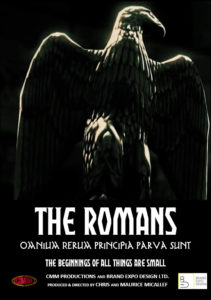
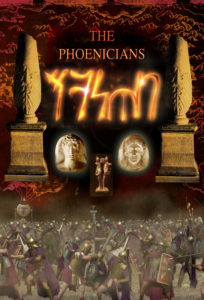
And finally, the most important question is will the people be interested to watch it? It may not always be the case that what is of interest to us will be of interest to the audience out there; gauge the idea of the documentary subject with friends, colleagues and family.”
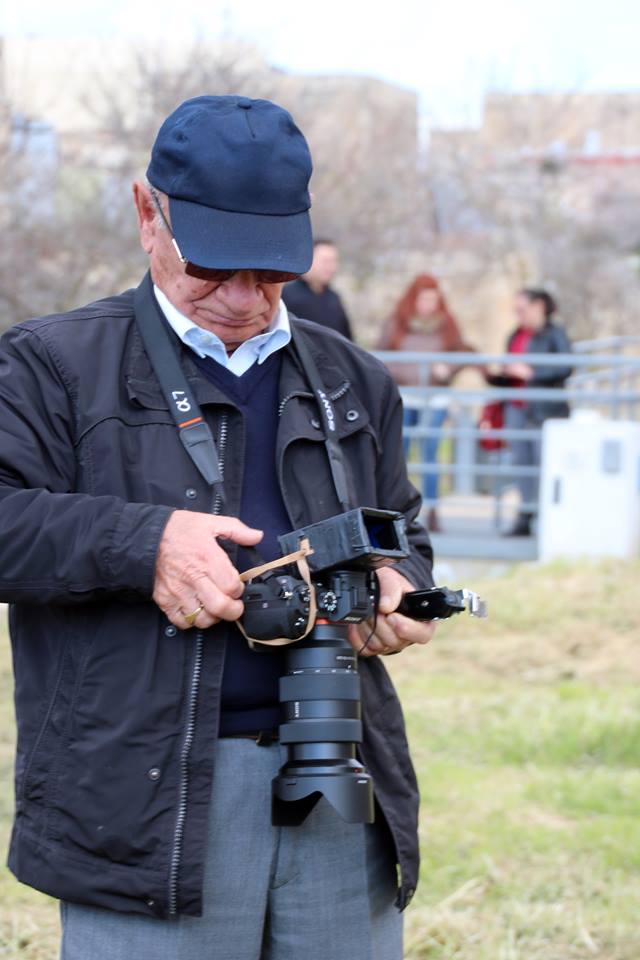
Inspiration and determination
Being a father-and-son team means that Maurice and Chris can talk about their work all day long without having to schedule meetings. Once agreeing on an idea it is thoroughly scrutinised, and if the subject has not been covered before, even better.
Chris’ doctorate in social sciences from Leicester University means researching subjects is second nature to him, and with both Maurice and Chris being researchers, editors and producers mean they know what to look for.
Creating an atmosphere where taking risks is a major factor, Maurice and Chris ensure that they have a team of committed and dedicated people on board with each documentary.
Synchronisation of being at the right place at the right time is key. Chris says, “Who on Earth is ready to wake up every day for months between 1 am till around 4 am, sometimes during winter, just to film moon alignments at the Tal Qadi temple limits of Burmarrad, or Mnajdra temples at Qrendi? If an alignment is missed, then filming will be delayed by months.”

The future of the Maltese film industry
In Maurice and Chris’ opinion, the Malta Film Commission encourages screenwriters to use both the Maltese culture and landscapes for production developments. “Our cultural wealth reflects a myriad of cultures, which surely help and assist the Malta Film Commission to instigate internationally-recognised writers to incorporate the Maltese Islands into part of their scripts.
In our view, the setting up of a video-on-demand portal should be set up by the Ministry of Tourism. This will engage further in audience interacting on a specific subject matter before visiting the Maltese Islands.”

Biggest achievements
In terms of qualities that make a successful documentary producer, Maurice and Chris have six main criteria around which they revolve their work: tell an engaging and inspiring story, do your homework, develop the right skills, keep meetings effective, get along with your team, and be clear and concise in all communications.
With this in mind, it’s not surprising how successful the pair are. The honorary service by Maurice Micallef in representing Malta through his several productions, and by promoting Malta’s national heritage abroad makes him the first Maltese filmmaker who has won in four different categories/genres in international competitions: they are fiction, documentary, animation and experimental.
His greatest achievement was when he was awarded Xirka Ġieħ in-Repubblika (‘for the benefit of the Maltese’ for exceptional merit in services to the island) in 2014 for an outstanding career in filmmaking.

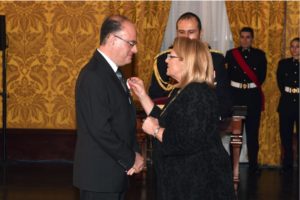
Ġieħ ir-Repubblika awarded to Dr Ing. Chris Micallef
For Chris, in addition to being mentioned in prestigious books and journals by well-known authors including Graham Hancock, Tore Lomsdalen, Professor Frank Ventura and Peter Marshall, his greatest achievement was when he was awarded Xirka Ġieħ ir-Repubblika in 2016 for his research conducted on Maltese megalithic temples that developed into documentary productions.
Awards and the future
Gaining over 570 awards worldwide for their work, their most prestigious accolades are the Best of Show (an IMDb-rated festival) for Hal Far Airfield, a short documentary tracing the history of the airfield. The film is impeccably researched and includes extensive original wartime footage combined with re-enactments of Maltese Army Regiments and the British Royal Air Force.

Other Best of Show accolades were registered for Kannizzati Fishing in the DOCS without Borders Film Festival and the WRPN.TV Short, Tight and Loose Global Film Festival Competition both held the USA.


The Giant Deep Reds won Best Film at the White Unicorn International Film Festival held in India; Best Film on nature/environment/wildlife at the Cult Critic Movie Awards held in India and World Film Carnival held in Singapore; Best Short Film at the Wonderland International Film Festival held in Australia and the Best of Festival -Ocean Life Documentaries in Nature Without Borders International Film Festival held in the USA

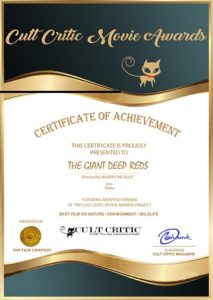
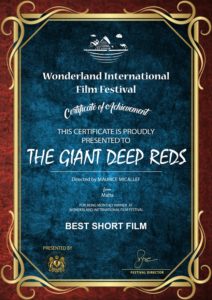

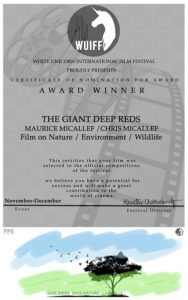
The Normans in the WRPN.TV Tight and Loose Global Film Festival won Best of Show and Best Picture in the Filmcon Film Awards. Both film festivals were held in the USA.


The Romans in the Accord CineFest held in the USA, the Mokkho International Film Festival held in India and the Golden Harvest Fim Festival held in Japan.

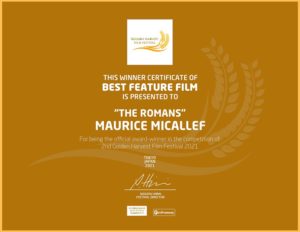

And Secrets of the Anunnaki won Best Short Film in the Uruvatti International Film Festival, the Winter Sun International Film Festival and the Port Blair International Film Festival held in India.
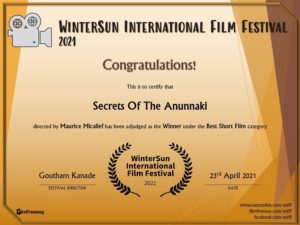
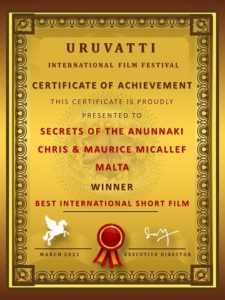

Sharing upcoming projects, Chris concludes, “We are in the final stages of producing a feature documentary about the French period in Malta. But we will leave it at that at this stage so that we have something to talk about in future!”
Maltese documentaries ‘The Normans’ and ‘The Giant Deep Reds’ win international awards
Two documentaries produced in Malta have gone on to win international awards this year.
The Normans
The documentaries “The Normans” and “The Giant Deep Reds”, produced by Chris & Maurice Micallef, won awards at international IMDb rated festivals in the last couple of months.
The Normans focuses on the medieval period in the Maltese Islands and has won best picture, best documentary feature, best television script and best trailer in the US Filmcon Awards.
Filmcon judges said the producers created “an impressive historical film with high production value, using live-action shots, 3d animation, drawings, mythology stories, narration, dramatic score and beautiful sound design”

Other awards were given at the Latitude Film Awards held in the UK, the Druk International Film Festival, the Calcutta International Cult Film Festival and the Crown Wood International Film Festival held in India, and the Florence Film Awards held in Italy, which saw them winning best costume design, best documentary feature, best educational film, best trailer, best production design, best director, best cinematography, best editing and best sound design for several times in these festivals.
The Giant Deep Reds
The Giant Deep Reds, which deals with the bluefin tuna and will be televised on ONE in 2020 also bagged awards. This includes the White Unicorn International Film Festival in India, where the documentary was voted as the best film, the best documentary, the best film on nature/environment and wildlife and the best trailer.
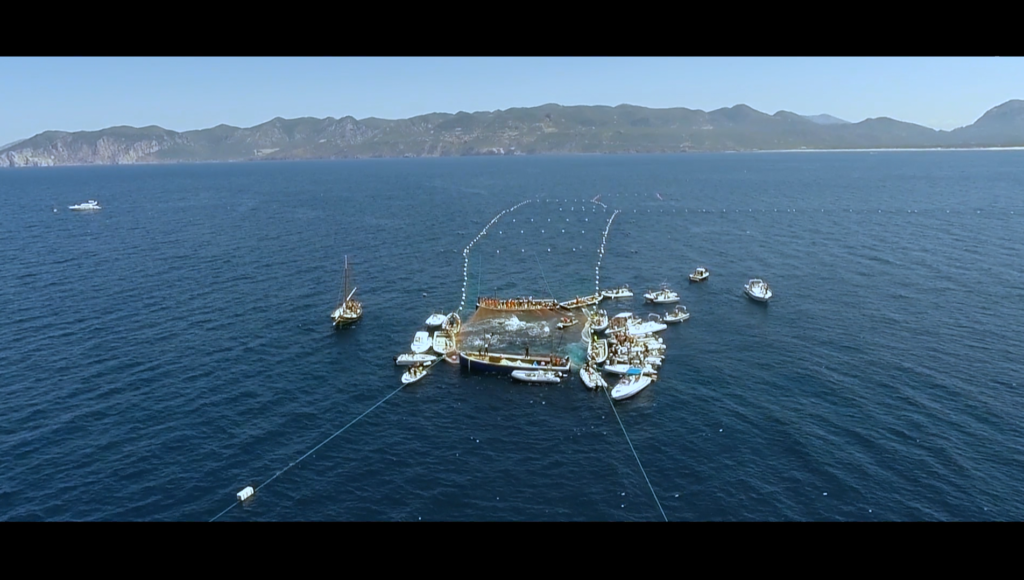
Other awards were registered at the Pinnacle Film Awards, Topshorts, Los Angeles Independent Film Festival Awards, Metro Film & TV Awards, So you can act film competition, Royal Wolf Film Awards, Festigious Los Angeles Competition, Short CineFest, the New York Film Awards, the Mindfield Film Festival and the Spotlight Documentary Awards, all held in the US and the Cult Critic Movie Awards which was held in India.

Accolades
To date, The Normans won 112 international awards, whilst The Giant Deep Reds won120 international awards.
Both documentaries were produced by CMM Productions, in collaboration with Brand Expo Design and One Group.
Yet another award for Malta-produced documentary
The documentary The Giant Deep Reds, produced by Chris and Maurice Micallef, continued winning in international film festivals in these last months. The documentary, which highlights the importance of the bluefin tuna, was awarded best cinematography, among 3,500 entries, in the Golden Merlion Awards held in Singapore.
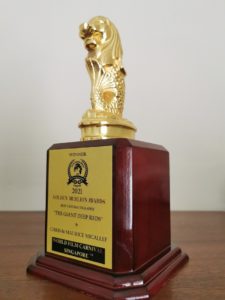

Malta participates in the 5th EU Film Festival in China

Malta participated in the 5th EU Film Festival held during November in China with the screening of the short documentary The Phoenicians.
The annual film festival under the initiative of the Delegation of the European Union to China was supported by the State Administration of Film, Radio & TV, and organised by the European Union Chamber of Commerce. During the festival, 26 films and three programmes of short films from across 26 EU Member States were screened in Beijing, Chengdu, Shenzhen and for the first time Tianjin.
The European film festival aims to familiarise Chinese people with European cinema, and the films were shown with Chinese subtitles.
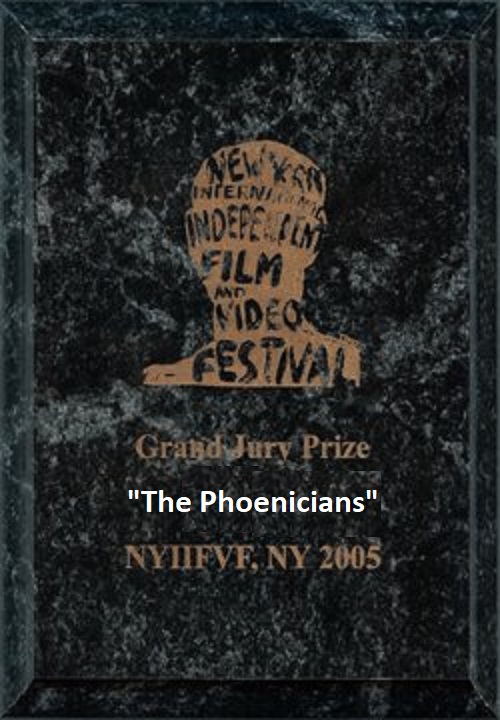
The Phoenicians
The Phoenicians produced by Chris and Maurice Micallef, and first shown on Maltese TV in 2005, was screened at the Spanish and Italian culture centres in Beijing.
The documentary about the Phoenicians and their influence on the Maltese Islands, partly shot in Lebanon, has received numerous awards at international film festivals.
This includes the Grand Jury Prize for Best Documentary Feature and Best Cinematography at the New York International Independent Film and Video Festival in 2005, and the Rising Star Award in the Canada International Film Festival held in Vancouver in 2010, and the Silver Remi Award in the History and Archaeology Category in the ‘44th Houston WorldFest International Film Festival’ held in the United States in April 2011.

